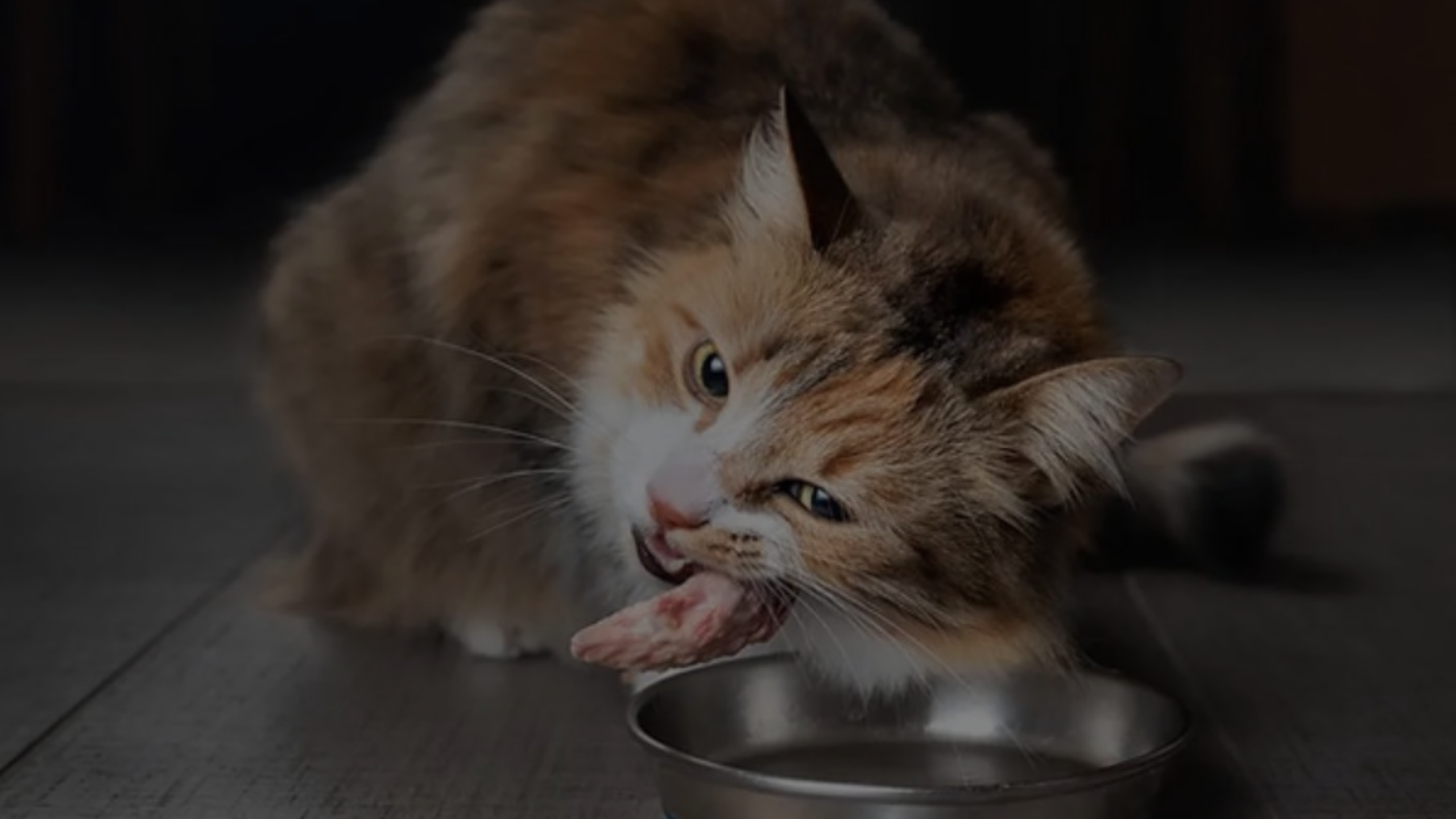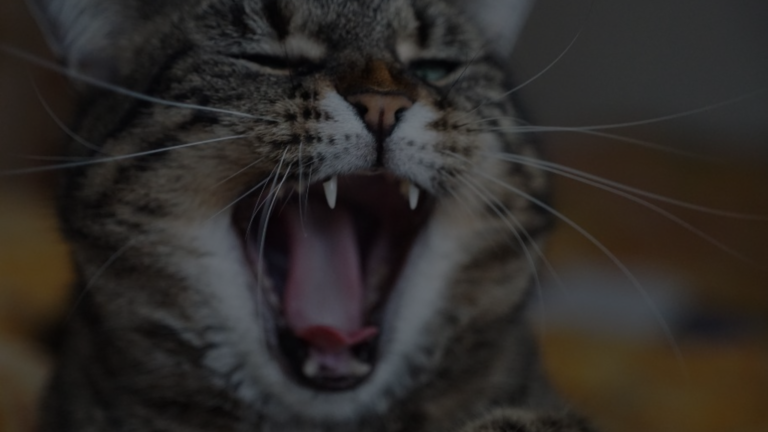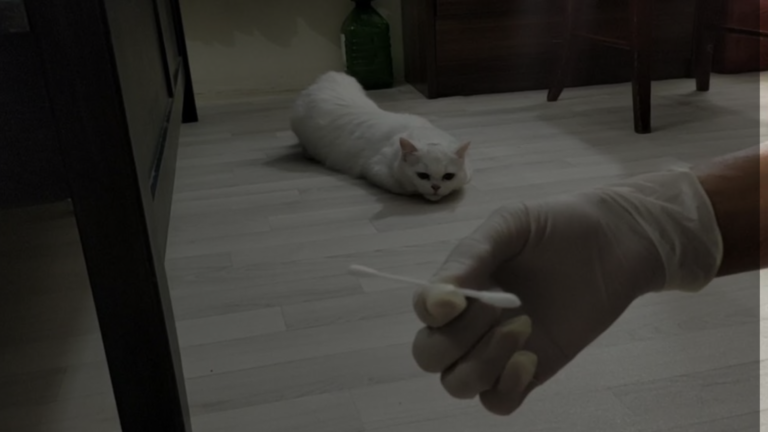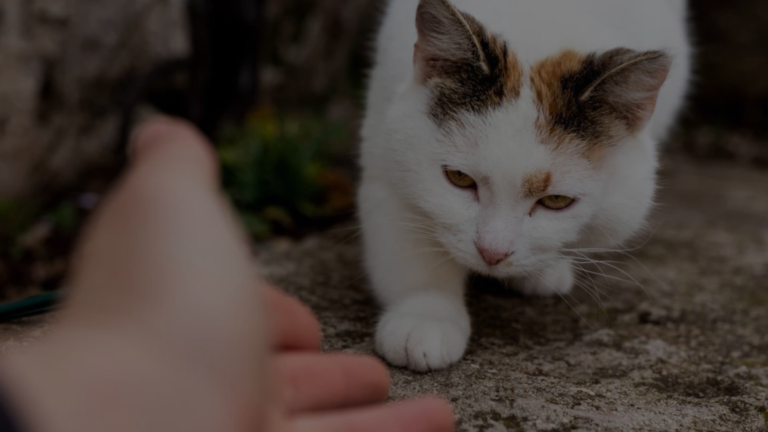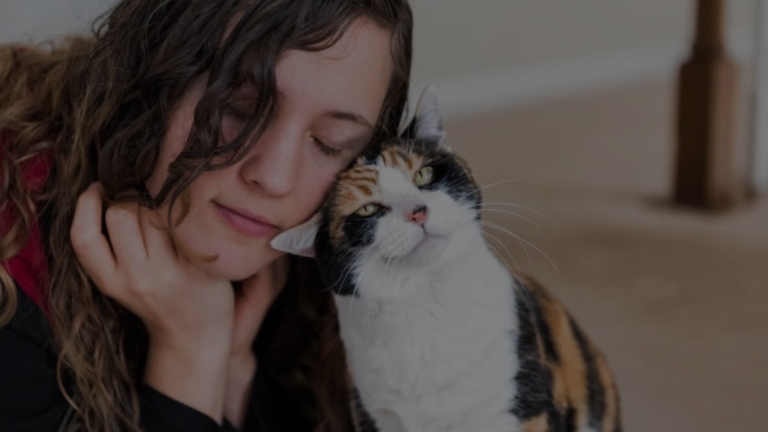Pancreatitis is inflammation of the pancreas, a gland located behind the stomach that produces enzymes to help break down and digest food. While it can affect dogs, cats are also susceptible to developing pancreatitis. As pancreatitis causes pain and inflammation in the pancreas, it is important to feed cats with this condition carefully to avoid further irritating their pancreas. Do you know what to feed a cat with pancreatitis? This article will discuss the best foods to feed and foods to avoid for cats diagnosed with pancreatitis.
What to Feed a Cat with Pancreatitis?
Don’t feed your cat with pancreatitis on your own! It’s crucial to consult a vet immediately. They’ll recommend the best diet based on your cat’s specific needs, as different approaches like moderate fat, easily digestible, or hypoallergenic diets may be necessary. Remember, professional guidance is key for your cat’s health!
What is Pancreatitis in Cats?
Pancreatitis in cats is quite common. The pancreas plays an important role in helping the body digest and break down foods. When the pancreas becomes inflamed or damaged, it is unable to properly perform its digestive functions. This can result in the cat experiencing abdominal pain, loss of appetite, vomiting, and diarrhea.
Pancreatitis in cats has multiple causes like obesity, high levels of fat in the diet, infection, trauma, hormonal issues, etc. Obesity and a high-fat diet are considered the most common triggers for feline pancreatitis. The condition causes damage and inflammation to the pancreas that can vary from mild to severe. Mild cases may resolve on their own with treatment, but severe pancreatitis requires intensive medical care and management of the cat’s diet.

Symptoms of Pancreatitis
Identifying pancreatitis in your cat is pivotal for timely intervention. Watch out for symptoms such as lethargy, loss of appetite, and vomiting. If you notice these signs, consult your veterinarian promptly.
Foods to Avoid Feeding a Cat with Pancreatitis
Cats struggling with pancreatitis must follow a low-fat diet as high-fat foods can aggravate the condition. Here are some foods commonly given to cats but should be avoided or strictly limited for cats with pancreatitis:
- Table scraps and human food – Most human foods are high in fat and could trigger pancreatitis flare-ups. Items like turkey skins, gravy, ribs, sausages, fatty cuts of meat, fried foods, dairy products, etc. must not be given.
- Treats and snack foods – Many commercial cat treats and junk foods like salmon skin strips, bacon flavors, cheese puffs, etc. are loaded with fat and preservatives.
- Dry kibble – Most dry kibbles feature high-fat levels above 10% and should be avoided for pancreatitis cats. The fat coats and irritates the inflamed pancreas.
- Fish – Fish is high in fat, particularly fatty varieties like salmon. Fresh fish may be fed in moderation as cooked fish loses some fat.
- Nuts and nut butter – Macadamia nuts, and peanut butter are very high in fat.
- Dairy – Whole milk, cheese, cream, and ice cream are high in lactose and fat, aggravating pancreatitis.
- Fatty meats – Meats with visible marbling and fatty cuts of beef, lamb, and pork must be avoided. Even lean meats should only be fed in moderation.
Careful reading of pet food labels is necessary to identify and avoid high-fat ingredients for cats dealing with pancreatitis. Strict management of a low-fat diet is crucial for healing and recovery.
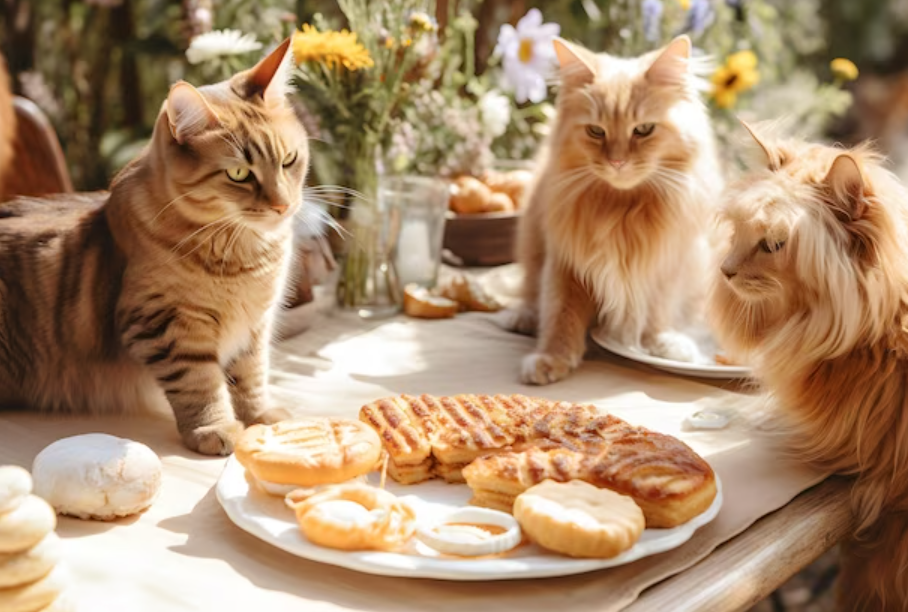
Best Foods to Feed a Cat with Pancreatitis
For cats diagnosed with pancreatitis, the goal is to feed a low-fat, highly digestible diet to avoid overtaxing their inflamed pancreas. Here are some of the best options to consider:
Commercially Available Low-Fat Cat Food
Several cat food brands offer prescription therapeutic formulations specifically designed for pancreatitis with fat content below 5%. These include Hill’s CD Feline i/d, Royal Canin Veterinary Diet Feline Hydrolyzed Protein, Purina HA Feline Diets, and Royal Canin Veterinary Diet Feline Specific.
These prescription foods contain highly digestible proteins and fats broken down into smaller molecules for easy absorption. They provide complete nutrition to promote healing while being gentle on the pancreas. Always speak to your veterinarian before making a switch to ensure the best option for your cat.
Homemade Low-Fat Cat Food
For those preferring a homemade cooking approach, consult your vet for guidance on suitable ingredients and recipes. A simple homemade pancreatitis diet involves:
- Cooked lean white meat poultry or fish as the protein source. Remove skin and visible fat before cooking.
- Pre-cooked brown rice, white rice, or pasta as the carb source. Avoid whole grains.
- Steamed or boiled vegetables like carrots, and green beans in moderation. Avoid starchy veggies.
- Add a teaspoon of omega-3 supplement like fish or flaxseed oil per serving for fatty acid needs.
- Bone broth or water as the liquid portion. Avoid dairy.
Ensure the overall fat content of homemade meals does not exceed 5%. Have the diet reviewed by your vet for approval and nutrient balance.

Canned Cat Food
While high in moisture, some canned cat foods may still contain fat levels exceeding 5%. Look for low-fat options with fat content under 5%, like Hill’s Prescription Diet w/d Feline Ground or Royal Canin’s Gastrointestinal canned formulas.
Canned versions are preferable over kibble as they are more digestible for pancreatitis cats. Add water if needed to thin out the consistency.
Dietary Supplements
Oral nutritional supplements like Fortiflora provide balanced nutrition without irritating the pancreas. Always check with the vet first before introducing any supplement.
Your Cat Not Drinking Water? Learn Causes, Signs, and Solutions
Additional Tips for Cats with Pancreatitis
- Feed small, frequent meals throughout the day instead of two big portions. This avoids overworking the pancreas.
- Monitor body weight to prevent obesity, a major pancreatitis trigger.
- Manage stress through play, petting, and puzzle feeders to reduce cortisol levels.
- Consider pancreatic enzyme supplements in severe cases as directed by the vet.
- Offer water at room temperature, not ice cold, to avoid upsetting the stomach.
- Eliminate all non-food triggers like antifreeze, certain medications, toxins, etc.
- Consult your vet about medications for inflammation and pain relief if needed.
- Schedule follow-up checkups to monitor recovery and make timely diet adjustments.
- Switch to a non-fat-based litter to minimize fat ingestion from grooming.

Patience and diligent management are crucial to giving pancreatitis cats the best care and support for healing. Consult your veterinarian regularly for guidance tailored to your cat’s individual needs. With the proper diet and supportive care, most cats can live comfortably with this condition.
Resources and References
FAQs – Cat Food Options for Cats with Pancreatitis
Is wet food suitable for cats with pancreatitis?
Yes, wet food is often recommended for cats with pancreatitis because it is easier to digest and contains more moisture than dry food. This can help to reduce the workload on the pancreas and promote healing.
What helps pancreatitis in cats?
Treatment for pancreatitis in cats typically depends on the severity of the condition. For mild cases, supportive care such as intravenous fluids and pain medication may be all that is needed. More severe cases may require hospitalization and intensive care.
What is the nutritional management of a cat with pancreatitis?
A low-fat, high-fibre diet is often recommended for cats with pancreatitis. This diet can help reduce the workload on the pancreas and promote healing.
What is the life expectancy of a cat with pancreatitis?
The life expectancy of a cat with pancreatitis can vary depending on the severity of the condition and how well it is managed. With proper treatment, many cats with pancreatitis can live long, healthy lives.
Does pumpkin help cats with pancreatitis?
Pumpkin is a good source of fibre, which can help to regulate digestion and reduce inflammation. Some veterinarians recommend adding canned pumpkin to a cat’s diet to help manage pancreatitis.
Is yoghurt suitable for cats with pancreatitis?
Yoghurt can be a good source of probiotics, which can help to support gut health. However, it is essential to choose a yoghurt that is plain and unsweetened, as some yoghurts contain ingredients that can be harmful to cats.

